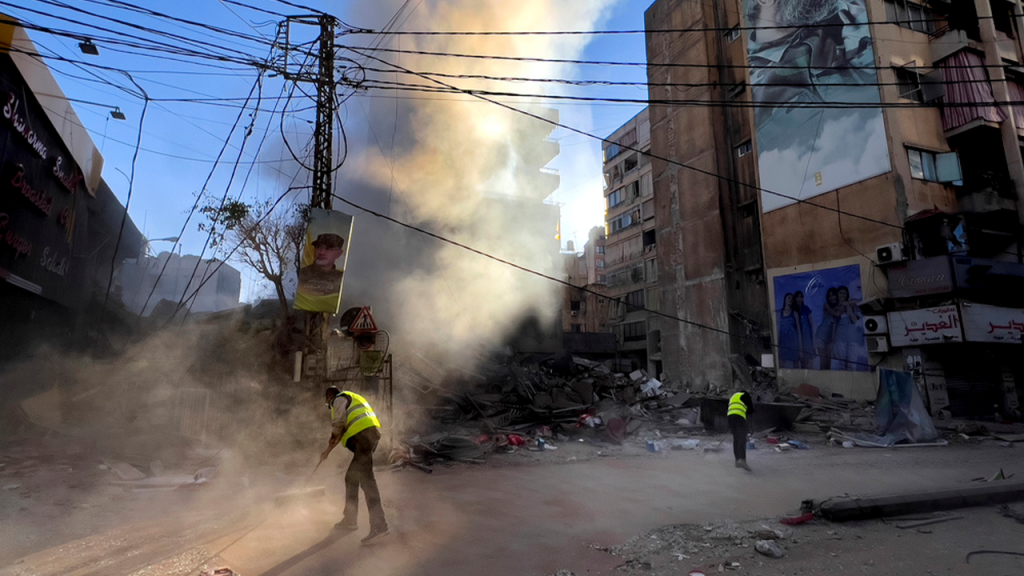Israeli airstrikes targeted several branches of a Hezbollah-run financial institution, Al-Qard Al-Hassan, in southern Lebanon and Beirut. Israel claims that Hezbollah uses the institution to fund terror operations, storing hundreds of millions of dollars. Evacuation warnings were issued ahead of the airstrikes, and there have been no reports of casualties. The IDF conducted intelligence-based strikes against numerous facilities and sites used by Hezbollah for terrorist activities. These funds were stored by Al-Qard al-Hassan Association, which directly funds Hezbollah’s terror activities, including purchasing weapons and paying operatives in its military wing.
The IDF emphasized that its mission is not over until hostages are returned, stating that they will not rest until this is achieved. Al-Qard al-Hassan Association, with over 30 branches across Lebanon, tried to reassure customers by evacuating its branches and relocating deposits to safe areas ahead of the strikes. The announcement of the airstrikes came after U.S. Defense Secretary Lloyd Austin raised concerns about civilian casualties in Lebanon during the Israel-Hezbollah conflict, urging Israel to scale back some strikes, particularly in and around Beirut. Iran, a supporter of Hezbollah, has complicated the situation, with reports of Israel moving military assets in response to Iran’s ballistic missile attack.
The United States is investigating the unauthorized release of classified documents indicating Israel’s preparations for a military strike in response to Iran’s actions. The government of Israel reported a drone attack targeting Prime Minister Benjamin Netanyahu’s house with no casualties. Meanwhile, fighting with Hezbollah and Hamas terrorists continued without a pause. The situation remains tense, with ongoing hostilities and military actions from all sides. The escalation of violence and use of airstrikes in Lebanon reflect the complex geopolitical dynamics in the region and the ongoing conflict between Israel and its adversaries.
The airstrikes on Al-Qard Al-Hassan Association show Israel’s commitment to targeting Hezbollah’s financial infrastructure in an effort to disrupt its funding of terror activities. The IDF’s actions are part of a broader strategy to weaken Hezbollah’s capabilities and prevent further attacks on Israel. The evacuation warnings and lack of casualties demonstrate Israel’s efforts to minimize civilian harm while targeting terrorist organizations. The involvement of Iran and U.S. investigations into classified documents highlight the broader implications of the conflict and the international interests at play in the region.
The ongoing conflict between Israel, Hezbollah, and other terrorist groups underscores the challenges of maintaining stability in the Middle East. The use of airstrikes and military actions in densely populated areas like Beirut raises concerns about civilian casualties and the impact on non-combatants. The unauthorized release of classified documents and drone attacks on political leaders further complicate the situation, indicating the potential for further escalation. It is essential for all parties involved to prioritize diplomatic solutions and de-escalation efforts to prevent further violence and protect civilians caught in the crossfire. The international community must continue to monitor the situation closely and support efforts to resolve the conflict through peaceful means.


